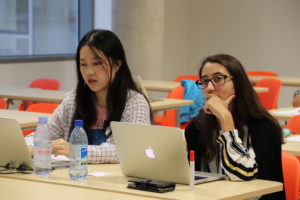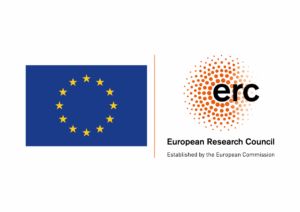Non-Degree / Dates: 11-15 July 2022
The project members of ‘Translating Memories: The Eastern European Past in the Global Arena’ invite applications to participate in ‘Translating Memories in Literature, Film, Museums, and Monuments’, an Eastern European Memory Studies Summer School. Taking place from 11-15 July 2022 in Roosta, Estonia, this summer school will combine keynote lectures, presentations, and field trips with the opportunity to present your research to a panel of academics and peers.
The ‘Translating Memories’ project focuses on how memorial forms and acts of memory are translated across, between and beyond post-socialist Eastern Europe, as well as how the arts and memory practices can potentially redraw boundaries within and beyond the region. Thus, invited experts studying media including literature, film, museums, and monuments will present on a wide range of forms, receptions, and transformations in the region from 1991 to the present day.
Possible topics include, but are certainly not restricted to, the following:
- the tensions between the local and the global in the production, circulation and reception of various acts of memory
- the aesthetic strategies and narrative and visual tropes employed by acts of memory to translate locally specific cultural and historical events for global audiences
- the intervention of aesthetic media of memory and curatorial practices in the politics of memory in Eastern Europe
- the use of archival materials and the role of archives in literature, films, museums and monuments, as well as the interplay between fact and fiction in remembering the past in these media of memory
We welcome applications from PhD students studying relevant topics in fields across the social sciences and humanities, including (but not limited to) literature, history, film studies, heritage studies, memory studies, and Slavic studies.
Confirmed Keynote Speakers
Zuzanna Bogumił (Polish Academy of Sciences)
Alexander Etkind (European University Institute)
Veronika Pehe (Czech Academy of Sciences)
Kevin M. F. Platt (University of Pennsylvania)
Magdalena Saryusz-Wolska (German Historical Institute Warsaw)
Mitja Velikonja (University of Ljubljana)
Format
Invited experts will present keynote lectures on the latest developments in theory and practice in their respective fields, as well as providing students with a variety of case studies to consider. Field trips will provide real-world examples for students to analyze through the lens of what they learn throughout the week. Finally, students will be able to present their research to their peers and instructors, providing valuable presentation experience as well as the opportunity to gain detailed feedback from a variety of theoretical and disciplinary backgrounds. PhD work in progress will be presented in the form of panels of 3 students, who will each give a 15-minute talk that is based on their ongoing research, relevant to the theme of the summer school. Each panel will be chaired by a senior scholar who acts as respondent and kicks off the extensive Q&A. PhD participants are expected to pre-circulate their paper to the other members of their panel and to the organizers at least 3 weeks in advance of the school. They are expected to be in full attendance for the duration of the school.
Practical Information
Organizers
The summer school is part of the project ‘Translating Memories: The Eastern European Past in the Global Arena’, which has received funding from the European Research Council (ERC) under the European Union’s Horizon 2020 research and innovation programme (Grant agreement No. 853385). For more information see: https://translatingmemories.tlu.ee
Where?
The summer school takes place in Roosta, Estonia: https://www.roosta.ee
The participants are accommodated in shared double cottages with limited single room/mezzanine options. The transportation from Tallinn, to and from the location, is organised by the summer school.
When?
Monday 11 July 2021, 9.00 a.m. – Friday 15 July 2021, 6.00 p.m.
Costs
The registration fee for the summer school is €100. A fee waiver may be requested in case of severe financial need. This fee covers a part of accommodation and meals in Roosta. The rest will be covered by the organisers. Applicants are responsible for the costs of their transportation to and from Tallinn and accommodation in Tallinn (if needed).
Applications
Interested applicants should contact Anita Pluwak, (anitaw@tlu.ee) with a 300-word abstract for a 15-minute paper (including title, your name, and institutional affiliation), a description of your doctoral research project (one paragraph), and a short CV (max. 1 page), as a single Word or PDF document. Applications should be submitted by 1 March 2022. Notification of acceptance: 15 March 2022.
NB! The registration to this course is not through Tallinn Summer School website.



